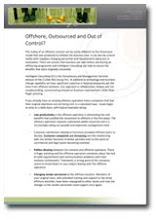Employers and employees alike will need to familiarise themselves with the changes which will come into effect in April this year. We have highlighted some of the major changes, so take a look and see what applies to you!
Are you, or are you about to be, a parent?
A lot of laws regarding parental leave are undergoing revision. Statutory pay for maternity, paternity, adoption and shared parental leave will increase to £139.56 per week (from £138.18), and the laws surrounding parental leave are about to become more balanced.
Beforehand, only mothers could take time off and adopting parents had to nominate one guardian to be the ‘primary adopter’. This ‘primary adopter’ was then entitled to all adoption leave, while the other had none.
As of the 5th April however, both mums and dads will be able to share up to 50 weeks parental leave and pay between them. This is subject to the mother taking off the first two weeks following the birth of a child as compulsory maternity leave. The shared parental leave must be taken within 52 weeks of birth or adoption placement, but the leave can be stopped, started and staggered between the parents in whatever way suits them. The logistics will be complicated for employers, but the vast improvement to work/life balance for the parents in those vital first few months will make a huge difference.
Previously, parents were allowed to take up to 18 weeks unpaid parental leave in order to deal with their childrens’ health and wellbeing on short notice. This only applied up until a child’s 5th birthday, but from 5th April 2015, the right will be extended up to a child’s 18th birthday. However, whilst the timeframe will grow dramatically, the amount of leave will not. It will remain at 18 weeks in total, and will just have to be stretched over the longer period.
Going on holiday?
The issue of holiday pay has been on the table for a long time, but change may be in the air. Since a number of major cases of holiday pay contention made the headlines, employees have been trying to negotiate the inclusion of their overtime in holiday pay calculations. Employers are meeting them halfway, saying that ‘non-guaranteed overtime’ payments should be included; that is, only the overtime taken as and when necessary, as opposed to any overtime agreed in a contract. The consequences of these decisions for some employers could be huge, and could open the floodgates for backdated claims. We will have to wait until early February for a government decision, which will hopefully clarify things.
Are you on a zero hours contract?
The Labour party announced that it will introduce new laws to protect zero hours workers, should they win the May General Election. Until then the government plans to ban employers from prohibiting their zero hours employees from working for other businesses at the same time. They looked at potential loopholes in the current law in November 2014, and we’re waiting for their response.
And there you have it!
The world of employment law is always shifting and fluctuating. This is only a handful of the changes affecting the workplace, but at least we know where we stand for now. Let’s make the most of it.
- Nick Walrond, Managing Director













